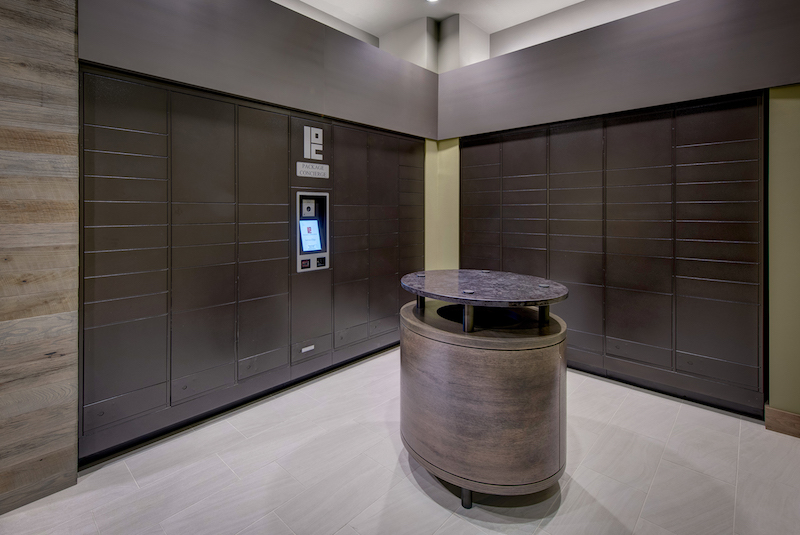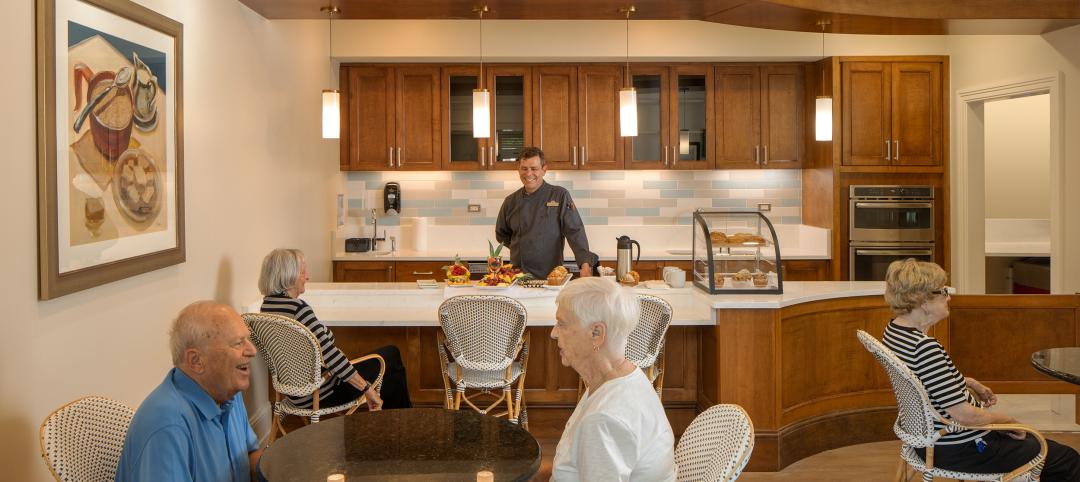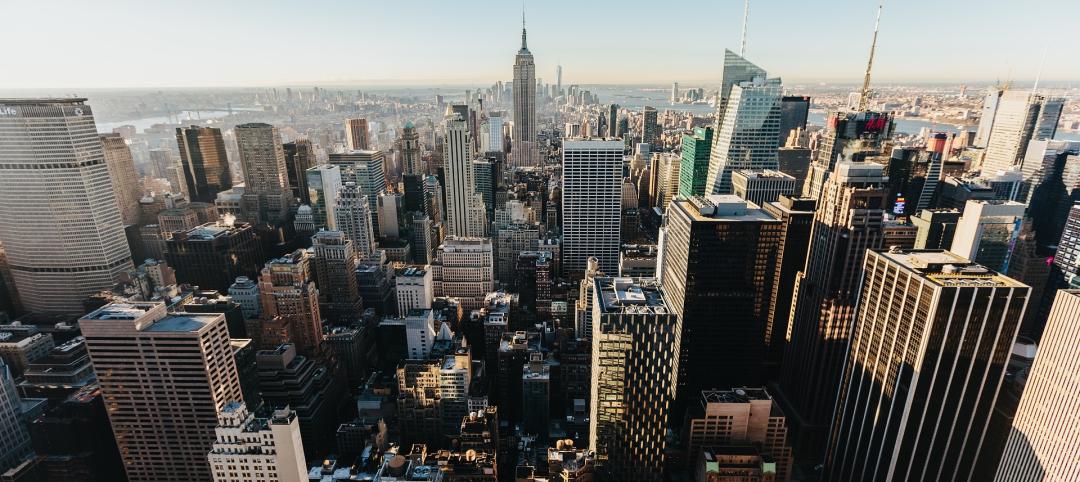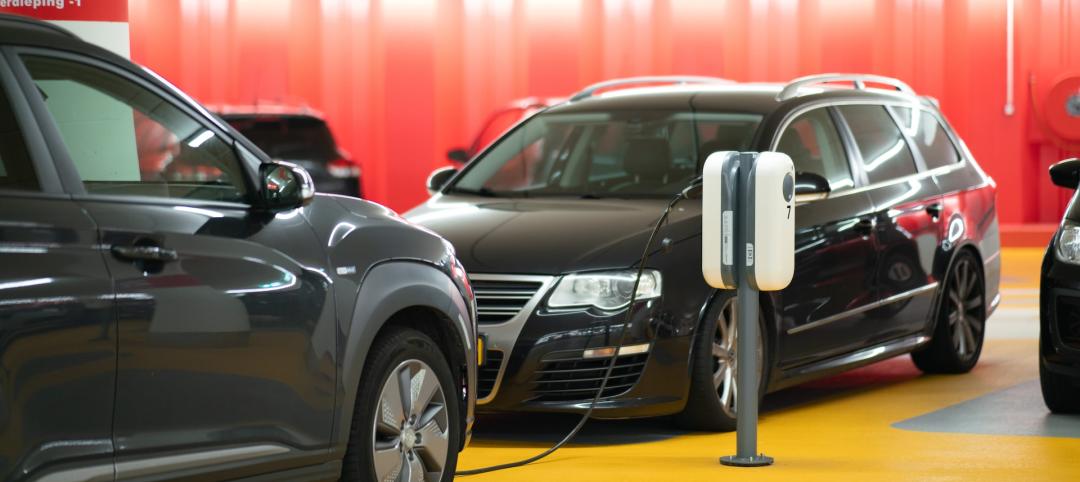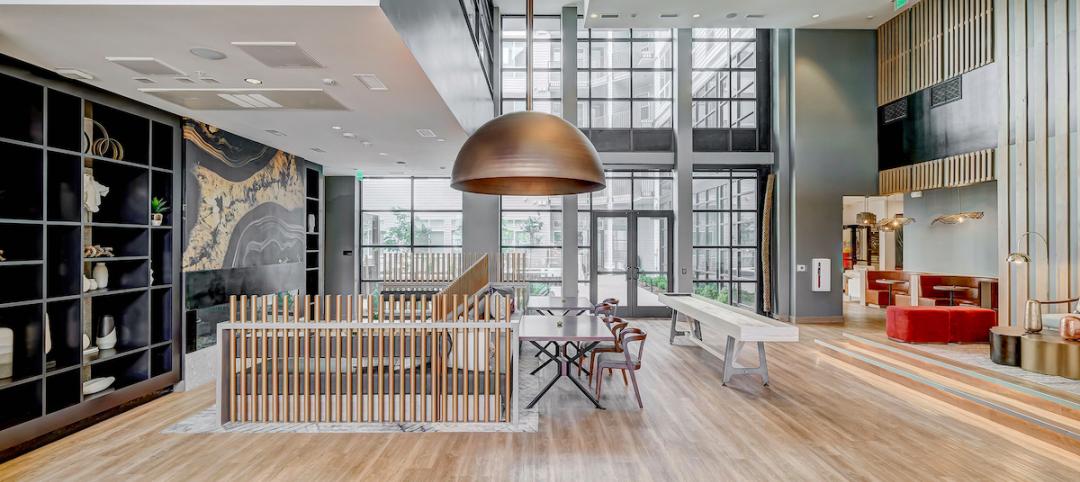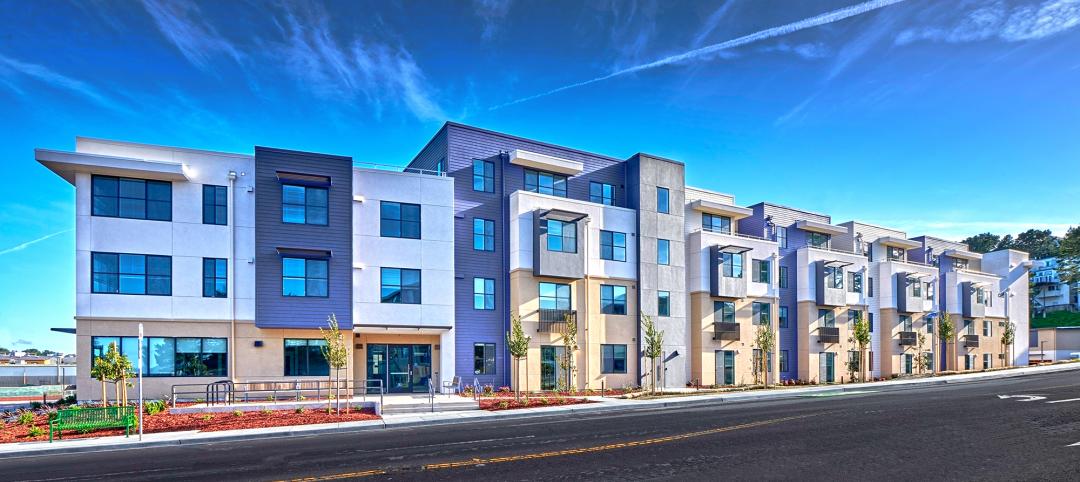Why did you refuse that?” George Costanza asks Jerry in a 1996 episode of “Seinfeld.” “Everybody loves a package.”
That might have been true back then, when Amazon was a mere online bookstore and receiving a package hadn’t become part of the daily routine. Today, anyone managing a decent-sized apartment or condo community may find the onslaught of packages overwhelming. With residents able to get delivery of anything from a pack of gum, to a $600 iPhone, to the refrigerated ingredients for that night’s dinner, multifamily complexes are awash in a swirling tide of cardboard boxes and plastic bags.
“The exponential growth of Amazon and other package delivery services has had a profound impact on the design of today’s multifamily communities,” says Rohit Anand, AIA, NCARB, Principal, KTGY Architecture + Planning. “Everything from groceries, to dry cleaning, to traditional online purchases is being delivered on a daily basis, leaving it up to property managers to determine how best to distribute them to residents.” In some cases, says Anand, residents expect around-the-clock access to their packages due to their busy schedules.
The solution: dedicated package delivery centers. Such facilities have been around for the last decade or so in some multifamily communities, but have grown in number and sophistication as the flood of packages has risen, and as residents’ reliance on them has gone up exponentially. Apartment managers and condominium associations also have to be concerned about legal liabilities associated with lost or damaged packages, and the mounting cost of staff hours devoted to accept and deliver packages.
DEFINING THE PACKAGE CENTER
A package center is a dedicated, secure space for delivered packages to be stored until residents can pick them up (or, in some cases, have them delivered directly to their units). Some centers take the form of a traditional mailroom, staffed with personnel to retrieve and manage packages for residents. But employing enough staff to allow residents 24/7 access to their packages can become difficult and expensive, so package delivery centers are automating.
Automated systems, such as those provided by Package Concierge or Parcel Pending, store packages in secure lockers. When a courier delivers a package, he/she will follow the integrated touchscreen’s prompts to enter the recipient’s name and select an appropriately sized locker. A locker will then open and the package can be placed inside.
Once the locker door is closed, a text message is sent automatically to the recipient alerting the person of the package’s arrival and providing a unique PIN. To get the package, the resident need only enter the PIN and the locker door will automatically open. Residents can access their packages any time, day or night.
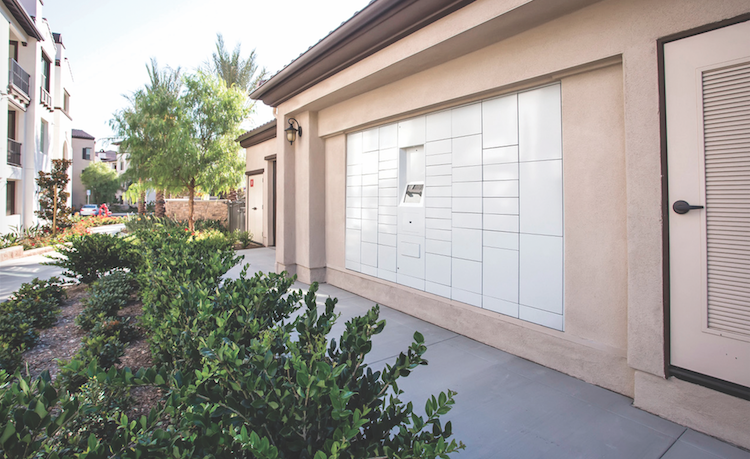 The Palisades at Sierra del Oro, Corona, Calif., developed by MBK Rental Living, uses an automated center to give residents 24/7 access to deliveries. Photo: MBK Rental Living
The Palisades at Sierra del Oro, Corona, Calif., developed by MBK Rental Living, uses an automated center to give residents 24/7 access to deliveries. Photo: MBK Rental Living
Due to the ever-increasing volume of deliveries, package centers are getting bigger and bigger. “Prior to the recession, we would allocate about one square foot of wall area per unit when designing a package room,” says Anand. “We later doubled that number to two square feet, and now are finding that we need to set aside three square feet per unit in some of the newest residential communities.”
Kass Management offers a service called Doorman, where packages are collected at an off-site location until residents can arrange for pickup. “We wanted a solution that addressed the need, yet was still economical,” says Kass’s Mark Durakovic, Principal.
Steven Fifield, President of Fifield Companies, says his company is even coordinating deliveries of “lifestyle-service” providers—Pilates instructors, dog groomers, personal chefs—who perform in-home services for apartment and condo dwellers.
Then there’s the proliferation of food-delivery services like Peapod and Blue Apron. To keep food from spoiling, package centers are starting to incorporate refrigerated rooms or lockers. RMK Management Corp. is retrofitting some properties with coolers and installing refrigeration rooms in new developments. “Refrigeration was virtually nonexistent before the recession,” Anand says. “Today, it is offered in approximately 10% of new residential communities.”
IT’S A COMMUNITY AFFAIR
Many rental and condominium communities integrate package centers into high-traffic areas. Not only does this make it easier for couriers to find the center and deliver packages, it also makes receiving a package a neighborly event.
If planned and designed appropriately, package centers can strengthen community ties among residents. The inclusion of communal tables and recycling bins gives residents the option to open their packages immediately while socializing with their neighbors. “Ultimately, it’s about the resident experience,” says Anand. “As designers, how can we create a community where serendipitous encounters lead to long-lasting relationships among residents?”
What about drone deliveries? Now that Amazon Prime Air and others are toying with the idea, figuring how best to integrate drone deliveries with package centers may prove to be a bit of a head-scratcher for designers. “Drones and packaging centers will need to be compatible,” says Rick Fletcher, Vice President of Sales & Marketing, MBK Homes.
But large-scale package delivery via drones does not appear to be imminent. There are plenty of logistical and regulatory hurdles Amazon and its online siblings will have to overcome before the skies will be filled with the sonorous buzz of package-laden drones.
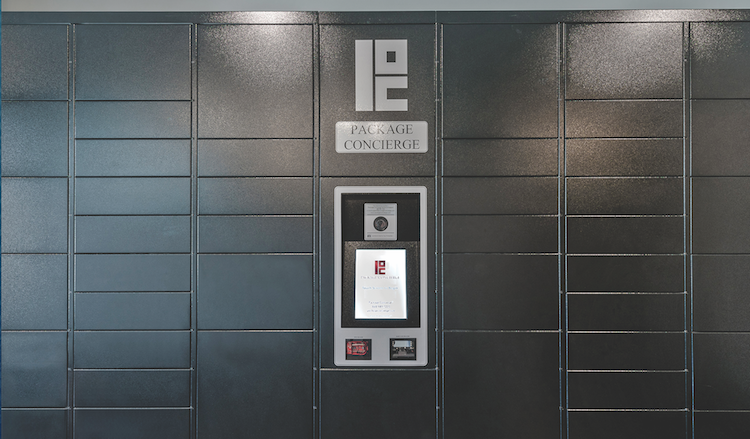 With the Package Concierge touchscreen at Village Plaza, Chapel Hill, N.C., designed by KTGY Architecture, the tenant follows the touchscreen prompts, enters a PIN, and the correct locker automatically opens. Photo: courtesy KTGY Architecture
With the Package Concierge touchscreen at Village Plaza, Chapel Hill, N.C., designed by KTGY Architecture, the tenant follows the touchscreen prompts, enters a PIN, and the correct locker automatically opens. Photo: courtesy KTGY Architecture
Related Stories
Multifamily Housing | Jan 12, 2023
8 noteworthy multifamily housing projects, including a refuge for unsheltered youth
Join us on a nationwide tour of notable new multifamily projects from around the country.
Senior Living Design | Jan 10, 2023
8 senior living communities that provide residents with memory care
Here are eight senior living communities that offer their residents memory care, an important service for residents who need this specialized care.
Government Buildings | Jan 9, 2023
Blackstone, Starwood among real estate giants urging President Biden to repurpose unused federal office space for housing
The Real Estate Roundtable, a group including major real estate firms such as Brookfield Properties, Blackstone, Empire State Realty Trust, Starwood Capital, as well as multiple major banks and CRE professional organizations, recently sent a letter to President Joe Biden on the implications of remote work within the federal government.
Multifamily Housing | Jan 9, 2023
New York City advances plan to build 500,000 new housing units
After New York Mayor Eric Adams announced a “Moonshot” plan to build 500,000 new housing units over the next 10 years in early December, he moved quickly to jumpstart the process.
Sustainability | Jan 9, 2023
Innovative solutions emerge to address New York’s new greenhouse gas law
New York City’s Local Law 97, an ambitious climate plan that includes fines for owners of large buildings that don’t significantly reduce carbon emissions, has spawned innovations to address the law’s provisions.
Fire and Life Safety | Jan 9, 2023
Why lithium-ion batteries pose fire safety concerns for buildings
Lithium-ion batteries have become the dominant technology in phones, laptops, scooters, electric bikes, electric vehicles, and large-scale battery energy storage facilities. Here’s what you need to know about the fire safety concerns they pose for building owners and occupants.
Multifamily Housing | Dec 29, 2022
San Jose is largest U.S. city to abolish minimum parking for new housing
San Jose, Calif., recently became the largest U.S. city to strike down minimum parking requirements for new housing development. The city reversed zoning devised in the 1950s that reputedly gave it the worst sprawl of parking space in northern California.
Codes and Standards | Dec 29, 2022
New York City multifamily owners concerned over fires caused by e-bikes
In 2022, there have been nearly 200 fires and six deaths in New York City caused by lithium-ion batteries used in mobility devices such as electric bikes and scooters.
Multifamily Housing | Dec 27, 2022
Traverse Apartments brings 281 sorely needed rental units to the Denver area
Traverse Apartments offers 281 units, designed by KTGY, is located in Lakewood, Colo.
Multifamily Housing | Dec 21, 2022
Bay Area school district builds 122 affordable apartments for faculty and staff
The 122 affordable apartments at 705 Serramonte, Daly City, Calif., were set aside not for faculty and staff at Jefferson Union High School District.


